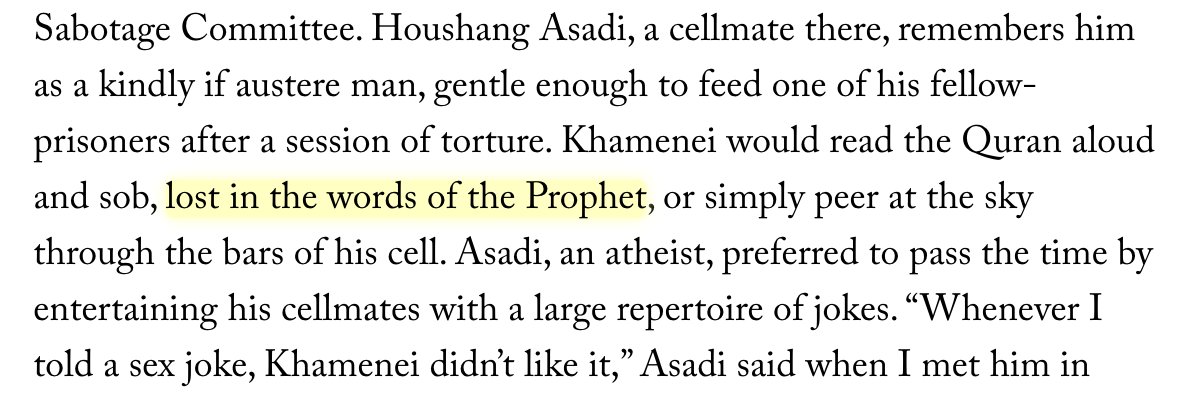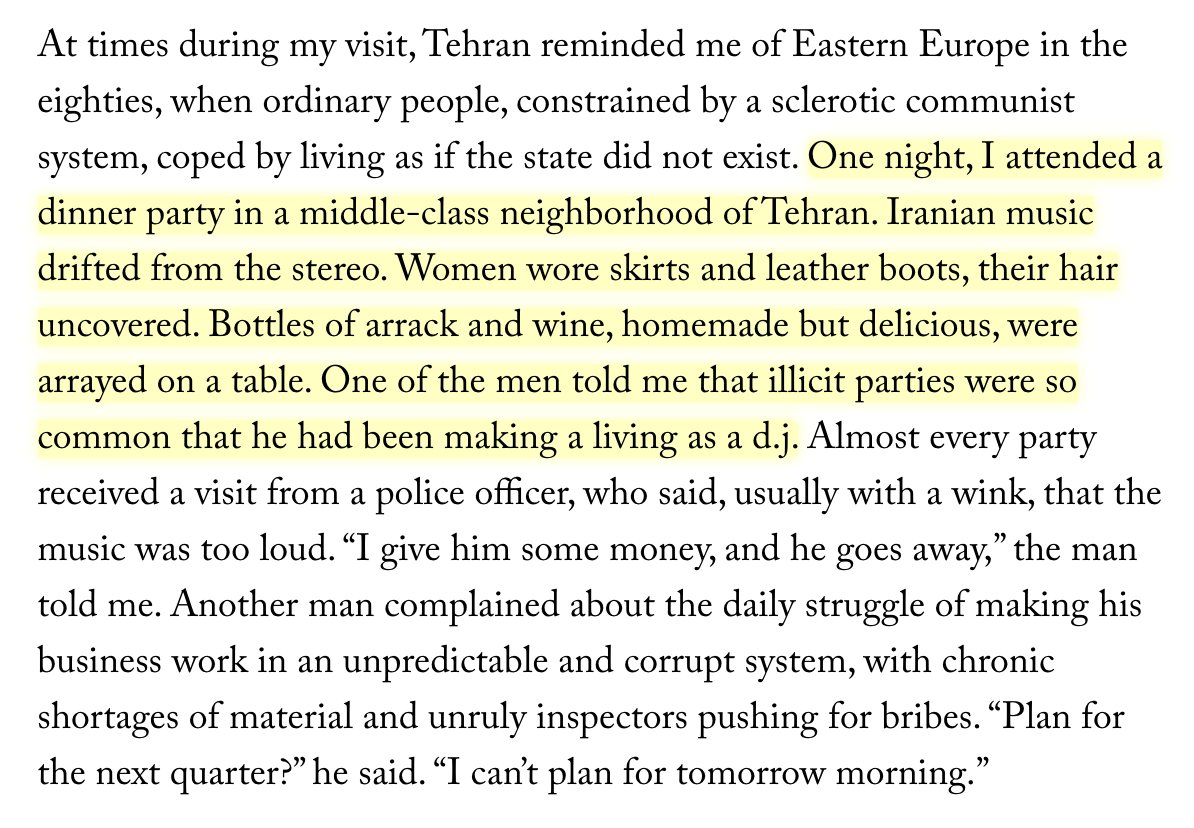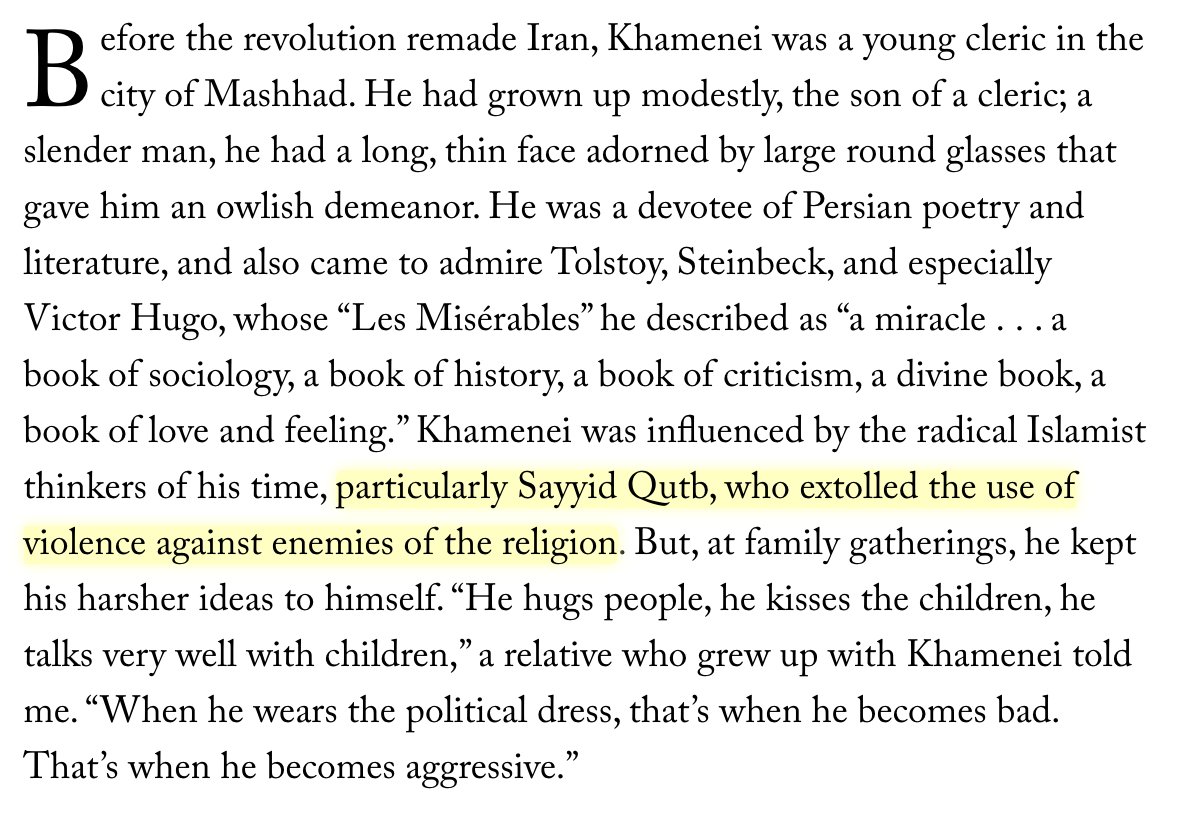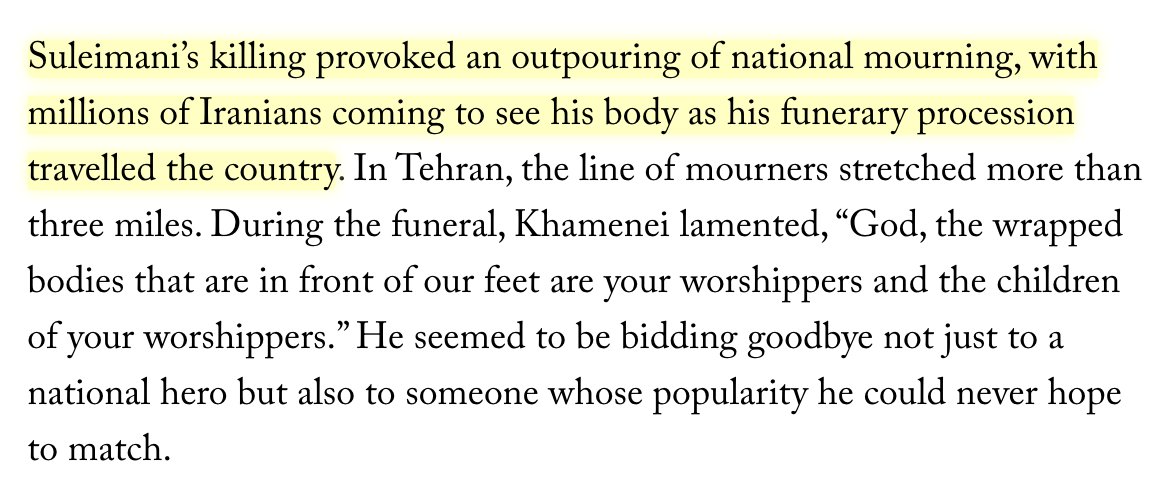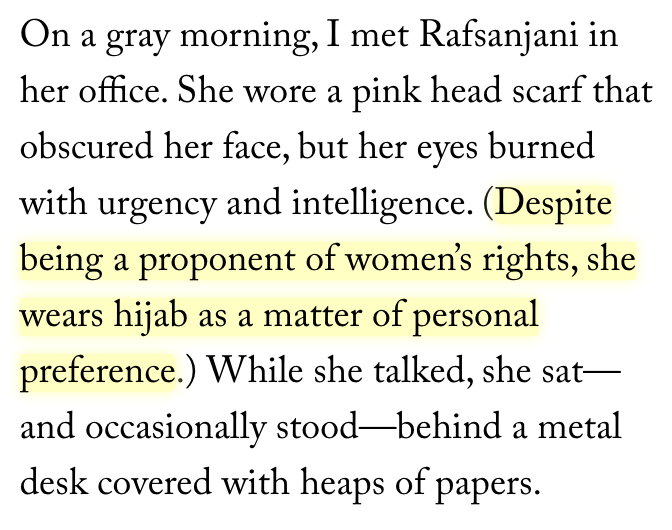A few quibbles, but the new Dexter Filkins on Iran (as it to be expected) is excellent: https://www.newyorker.com/magazine/2020/05/25/the-twilight-of-the-iranian-revolution">https://www.newyorker.com/magazine/...
This was a bit of a head-scratcher. There aren& #39;t many parts of the Quran where Prophet Mohamed& #39;s own words are directly quoted, so not even sure what this is supposed to mean. It& #39;s certainly not something to be "lost in"
I was really hoping there wouldn& #39;t be the requisite account of an underground Iranian party where the women wear skirts and everyone drinks wine, but there it was
And if you have only one sentence to sum up Qutb, this seems like an odd choice. Qutb didn& #39;t become as influential as he did, including for Iran& #39;s clerics, because of his extolling violence (that wasn& #39;t exactly a new idea)
If you& #39;re going to restate the narrative that Soleimani was a national hero who was loved by the people, fine, but at least temper it with a bit of critical distance
On the other hand, how do you spend time in Iran and not talk to hardline regime supporters/officials. The reformist narrative is easy to get in the US. I& #39;d be intrigued how "true believers" explain and justify the regime. What sorts of mistakes are they willing to acknowledge?
Do a majority of Iranians dislike the regime? Sure, that seems likely. But to share uncritically a self-serving quote that *85%* of Iranians "hate" the current regime seems like a bit of Western projection, in the absence of actual evidence
https://www.newyorker.com/magazine/2020/05/25/the-twilight-of-the-iranian-revolution">https://www.newyorker.com/magazine/...
https://www.newyorker.com/magazine/2020/05/25/the-twilight-of-the-iranian-revolution">https://www.newyorker.com/magazine/...
Also, how would a headscarf "obscure" someone& #39;s face, where the only thing that stands out to you are her eyes? By definition, a headscarf would cover the hair but show most of the face, even if it& #39;s a stricter style chador
And why would Filkins use "despite" in this manner—as if to suggest that it& #39;s odd or paradoxical that a woman wearing a headscarf would actually support women& #39;s rights?

 Read on Twitter
Read on Twitter